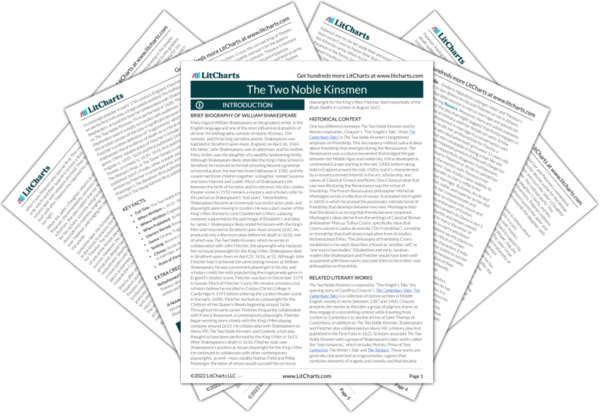When Arcite instructs Palamon to join him in “follow[ing] / The becking of [their chance],” he means that he and Arcite should continue down the path the gods have laid out for them. To run from war would be to run from (and try to control or alter) fate, which is a sin of which Creon is guilty, so it’s something the cousins should avoid. Therefore, to do what is brave and virtuous, they boldly accept their fate and put their futures in the hands of the gods, whom they accept as more powerful and more knowledgeable .
